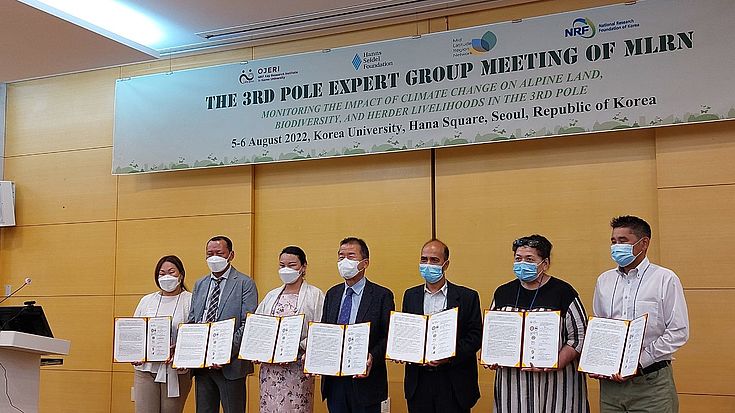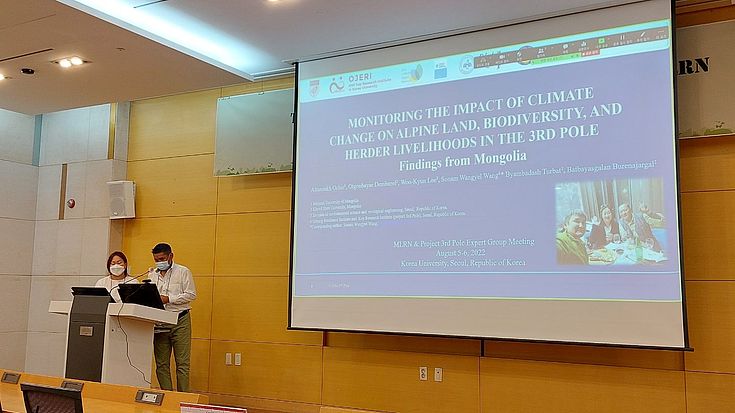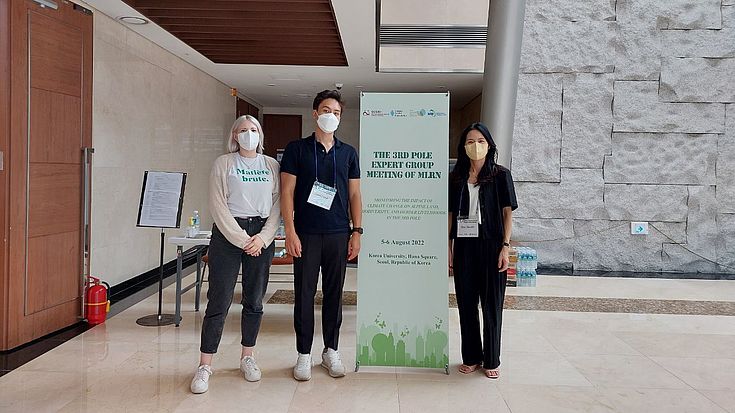Meeting
MLRN & Project 3rd Pole Expert Group Meeting

The two-day event, organized by the OJEong Resilience Institute and the Institute for Sustainable Development of Korea University and supported by the Hanns Seidel Foundation, and the National Research Foundation of Korea, was split into the presentations of results and methods on Friday, and a discussion about plans and possible fundings on Saturday.

The 3rd Pole is an alpine region that holds glaciers like the North and South Poles and is home to various species and humans. In order to maintain the livelihoods in the secluded areas, research needs to be done and countermeasures developed. Therefore, combining each other's strengths and sharing knowledge is a key factor in sustaining nature and livelihoods in the Mid-Latitude Region.

The experts talked about the situations in Bhutan, Kazakhstan, Kyrgyzstan, Mongolia, Nepal, North Korea, and Turkmenistan and gave interesting insights into the problems each region suffers from and where they differ. Senior-reseacher Dr. Choi of the HSF was also invited as an expert and presented her findings on North Korea's forest condition. She was accompanied by the interns Sabine Leykam and David Straub.
